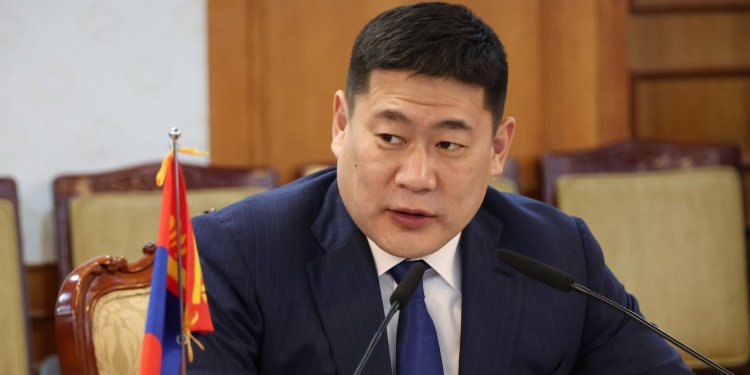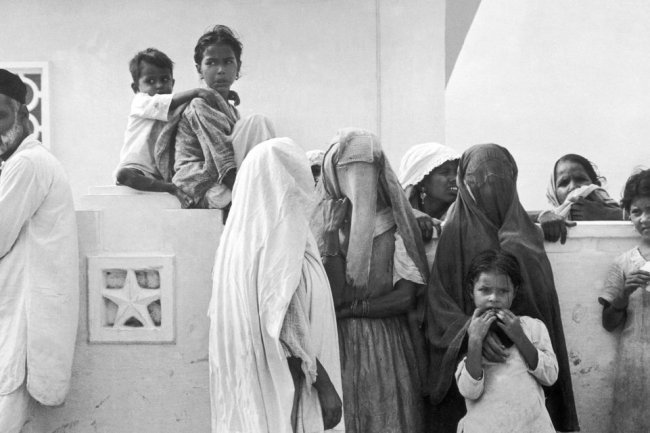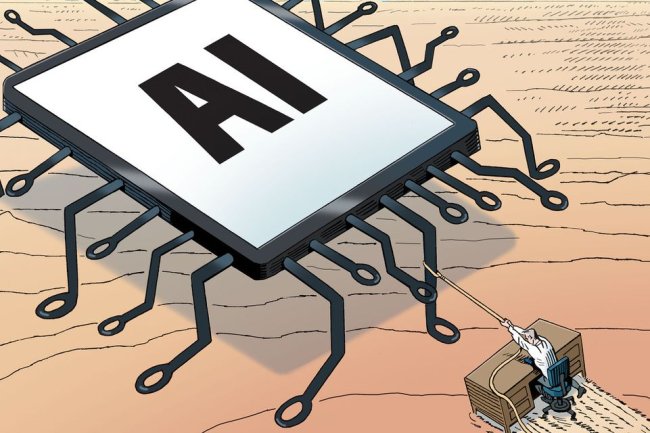Caught Between China and Russia, Mongolia Seeks Closer U.S. Ties
Landlocked country casts itself as a democratic outpost in Asia with resources to power clean-energy transition Mongolian Prime Minister Oyun-Erdene Luvsannamsrai. Photo: yonhap/Shutterstock By Brian Spegele Aug. 1, 2023 11:31 am ET BEIJING—Sparsely populated and sandwiched between two authoritarian powers, Mongolia is positioning itself as a resource-rich, democratic partner for the U.S. in Asia amid growing competition between Washington and Beijing over the minerals needed to pursue cleaner energy. That push will be at the heart of a visit by Mongolia’s prime minister to Washington this week, as his country attempts to draw itself closer to the West in a bid to diversify its economy without angering its powerful neighbors of Russia and China. “The visit will be crucial in del


Mongolian Prime Minister Oyun-Erdene Luvsannamsrai.
Photo: yonhap/Shutterstock
BEIJING—Sparsely populated and sandwiched between two authoritarian powers, Mongolia is positioning itself as a resource-rich, democratic partner for the U.S. in Asia amid growing competition between Washington and Beijing over the minerals needed to pursue cleaner energy.
That push will be at the heart of a visit by Mongolia’s prime minister to Washington this week, as his country attempts to draw itself closer to the West in a bid to diversify its economy without angering its powerful neighbors of Russia and China.
“The visit will be crucial in delivering a different understanding for the U.S. side about our democracy,” Prime Minister Oyun-Erdene Luvsannamsrai, speaking through an interpreter, said in an interview ahead of his visit.
During the visit that begins Wednesday, Oyun-Erdene is expected to meet with Vice President Kamala Harris and Secretary of State Antony Blinken. He is also slated to visit the National Aeronautics and Space Administration.
Mongolia’s unique geographic positioning and rich mineral reserves are winning it increasing attention on the global stage. The Washington visit is the latest of several high-profile engagements by Oyun-Erdene, who welcomed French President Emmanuel Macron to Mongolia in May and sat down with Chinese leader Xi Jinping in Beijing in June.
Mongolia was long a Communist country closely tied to the Soviet Union. Since transforming into a democracy in 1990, it has kept close links to both Russia and China, and relies on them for imports of electricity, fuel and many other goods. Most of Mongolia’s mining production, including significant volumes of copper ore and coal, is sold to the Chinese market.

Prime Minister Luvsannamsrai Oyun-Erdene met with Chinese President Xi Jinping in Beijing in June.
Photo: Shen Hong/Xinhua/Associated Press
Courting the U.S. at a time of heightened tensions between Beijing and Washington carries risks for Mongolia, as China has shown itself willing to punish its smaller, landlocked neighbor for perceived slights. After Mongolia in 2016 welcomed a visit by the Dalai Lama—the Tibetan spiritual leader whom China paints as a separatist—Beijing raised fees on Mongolian mining products and caused traffic to back up at an important border crossing.
The risk of shortages of minerals like copper that are used in electric-vehicle batteries, as well as solar and wind energy systems, is helping draw the U.S. and Mongolia closer, with Washington increasingly concerned about China’s domination of the raw materials used in clean energy production.
“The global energy transition is ongoing but it’s also at risk,” Jose W. Fernandez, undersecretary for economic growth, energy, and the environment at the State Department, said at an event hosted in July by the Center for Strategic and International Studies after touring Mongolian mines.
While Mongolia’s government says it has tens of millions of metric tons of such minerals in reserve, issues including a lack of infrastructure and corruption have held back foreign investment. In June, the State Department signed an agreement with Mongolia’s government to help the country’s resource sector attract foreign capital.
The next step, Oyun-Erdene said, would be forming partnerships with more international companies to jointly explore more of the country’s mineral resources. He acknowledged that the country’s current data might not be trusted by international companies.
“We would like to be more open and transparent to our investors, especially Western partners and including the United States,” Oyun-Erdene said, adding that he also has been discussing potential investment in the country with SpaceX founder Elon Musk.
Mongolia approved the use of SpaceX’s Starlink satellite-internet service in July. Oyun-Erdene said that he and Musk, who has long envisioned sending humans to Mars, recently discussed establishing training centers in Mongolia because of what the prime minister said were physical similarities between its Gobi Desert and Mars.
SpaceX didn’t respond to requests for comment.
Geopolitically, Mongolia is among the developing countries that are treading carefully between the U.S. and its allies on one side and China and Russia on the other, as the war in Ukraine grinds on. Ulaanbaatar has abstained from votes at the United Nations that have condemned the invasion.
The prime minister in the interview called for a ceasefire and the start of negotiations as soon as possible, but said that Russian people should not be blamed for the actions of their government.
“We’re incredibly concerned about this tension because the challenges and consequences of this will be not just geopolitical but also economical,” he said.
The prime minister’s trip to Washington comes as Mongolia returns to economic health following a slowdown during Covid-19. The country’s economic growth was just 1.6% in 2021, dragged down by China’s pandemic border closures. With the border open again, the economy is on track to grow by around 5.2% in 2023, according to a World Bank report released in April.
The country has had discussions this year with the Asian Development Bank, the World Bank and European Bank for Reconstruction and Development, each of which could offer hundreds of millions of dollars worth of new loans, said Bold Javkhlan, Mongolia’s finance minister. The government is planning to use the money it raises for infrastructure projects, said Javkhlan.
—Austin Ramzy and Matthew Thomas contributed to this article.
Write to Brian Spegele at [email protected]
What's Your Reaction?













